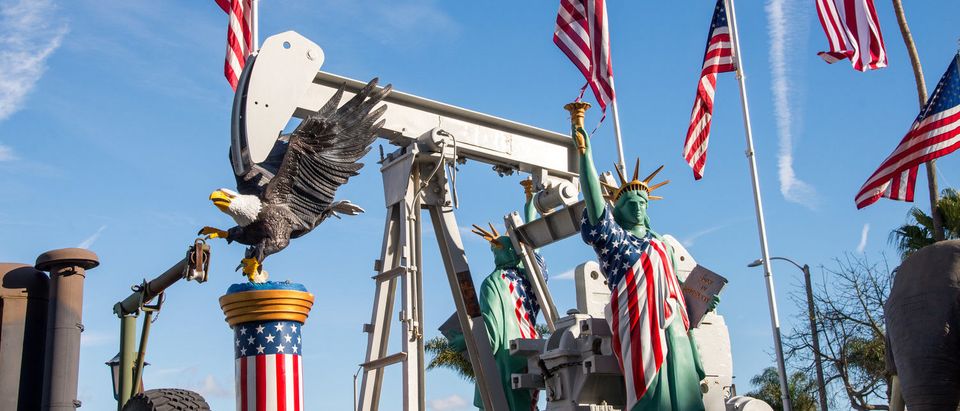Government research published Tuesday indicates that drilling for oil and gas isn’t to blame for rising methane emissions.
A collaborative effort between the National Oceanic and Atmospheric Administration (NOAA) and the University of Colorado, Boulder attempted to link rising methane levels with the expansion of hydraulic fracturing, also called fracking, in the U.S. Instead, it discovered that methane emissions are rising because of “agricultural and wetland emissions” from the developing world. NOAA’s official website, Climate.gov, now acknowledges that oil and gas activities in the U.S. are not to blame for rising global methane levels.
Methane is a potent greenhouse gas, which scientists say contributes to global warming. The substance is about 20 times as potent as carbon dioxide, the most common greenhouse gas, but remains in the atmosphere for a shorter amount of time.
Methane emissions remained constant from 1999 to 2006, but have sharply risen since 2007. At first, scientists thought this may be due to the oil and gas industry, but further research debunked that hypothesis. Researchers discovered that a rare isotope called carbon-13 associated with oil and gas production had dropped “significantly” since 2007, meaning that oil and gas likely aren’t the culprit.
“The drop seems to rule out fossil fuel emissions, wildfires, or biomass cook stoves as the reason for the post-2007 methane surge,” scientists Rebecca Lindsey and Michon Scott wrote on Climate.gov. “All those sources of methane, to a greater or lesser extent, are enriched in carbon-13, not depleted.”
Reducing agricultural and wetland emissions of methane from the developing world could be exceedingly difficult, according to NOAA.
“Both of the likely contenders for the recent increase in emissions could be tricky to mitigate,” Lindsey and Scott wrote. “In developing countries with burgeoning populations, methane control could wind up pitted against the need to expand food production. If natural wetlands are the main source of the increase, control may not even be possible.”
Even though the oil and gas industry isn’t to blame for rising emissions, NOAA says government regulators “might intensify the need to control emissions from other sources, including fossil fuels.”
Government regulations to reduce methane emissions have been estimated to cost as much as $155 million in 2020, possibly rising to $290 to $400 million by 2025, according to a study by National Economic Research Associates.
The EPA does not list the amount of temperature increases adverted in the rule’s press release, even though the rule exists just to limit global warming. Industry groups estimate that the rule would only cause a temperature drop of 0.0047 degrees Celsius by the year 2100, an amount so small it couldn’t even be detected.
Send tips to andrew@
All content created by the Daily Caller News Foundation, an independent and nonpartisan newswire service, is available without charge to any legitimate news publisher that can provide a large audience. All republished articles must include our logo, our reporter’s byline and their DCNF affiliation. For any questions about our guidelines or partnering with us, please contact licensing@dailycallernewsfoundation.org.


